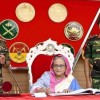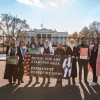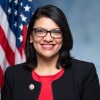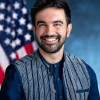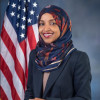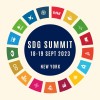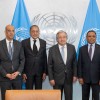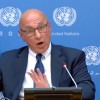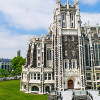Bangladesh's Political Development
BNP's Vision for State Building; Zia to Tarique Rahman

Every country has a philosopher or leader who has led both nation-building and state-building efforts. For example, Deng Xiaoping is treated as the "architect of modern China," Mahathir Mohammad is treated as a changemaker of modern Malaysia, and simultaneously President Ziaur Rahman is treated as a reformer and shaper of contemporary Bangladesh. This article argues that after Bangladesh's independence, President Ziaur Rahman and his wife, former prime minister Begum Khaleda Zia, introduced the basic structure of Bangladesh's state and nation-building. In this way, their son, Bangladesh Nationalist Party (BNP) acting chairperson Tarique Rahman, declared "the structural reforms of the state." The article attempts to investigate Mr. Rahman's democratic values and crisis-resolution vision through the link between President Zia and Prime Minister Khaleda's regimes.
President Zia as a founder of state building
Fortunately, Ziaur Rahman was the man who declared the independence of the People's Republic of Bangladesh. After the liberation, he resumed his military work. The country was run by its founder president, Sheikh Mujibur Rahman (1972–1975). During his time in office, the country went through many economic and security crises. To face this crisis, President Rahman introduced a "one-party system" which called Bakshal. Countries are dealing with multifaceted political issues in the aftermath of Sheikh Mujibur Rahman's assassination. On this basis, general Ziaur Rahman escaped from the capture situation with the movement of people and soldiers on November 7, 1975 and assumed the presidency. It was the first time in history that an army officer took power with overwhelming popular support.
General Zia inherited a dire economic crisis from the Awami League (AL) rule. So, his government had to find an alternative to the highly interventionist model that Mujib's government had used after Bangladesh gained its independence. The Revised Investment Policy of December 1975 (RIP1975), which focused on building a robust private sector, shows that Zia quickly decided to break away from the state-led strategy and make bold efforts to create an economic framework that is friendly to the market. The RIP1975 was an effort to lower government deficits and inflation, raise personal savings rates, and stimulate long-term growth through an export-led expansion of the economy. More importantly, it encouraged private sector entrepreneurs to invest in all but eight strategically critical industries and emphasized the need to transfer state-owned businesses (SOEs) to the private sector. The RIP Act of 1975 proclaimed that the state would never nationalize private firms and significantly raise the cap of private investment to Tk. 100 million. Owners, both Bengali and non-Bengali, were compensated for losses they sustained due to the Mujib regime's nationalization scheme. The country's first Export Processing Zone (EPZ) was founded in the city of Chittagong thanks to the RIP (1975), which opened up new prospects for foreign businesses (Bangladesh Economic Survey 1975–1976, 1976, pp. 228–229). General Zia's administration launched a disinvestment program to deregulate the economy and established the Disinvestment Board, tasked with carrying out promised privatizations. It reopened the Dhaka Stock Exchange and built a Dhaka Investment Promotion Center to encourage private investment. Furthermore, Zia's regime directed Development Finance Institutions (DFIs) to lend money to private entrepreneurs. As a result, over the next few years, DFIs will emerge as the primary financial source of private investment (Sobhan & Mahmood, 1991, P. 158).
Zia also tried to strengthen the macroeconomic framework. In accordance with the terms of the IMF/World Bank-sponsored adjustment programs, Zia's administration implemented measures to lower the budget deficit, reform the public sector, remove subsidies on products like food, fertilizer, and petroleum, and liberalize the trading system. In addition, the taka was depreciated to encourage a competitive exchange rate policy. It implemented many steps to enhance fiscal balances, including tax reforms, export growth, and foreign exchange reserve management (Rahman, 1994, pp. 13–14). The second significant initiative taken by President Zia was opening the space from one party to a multiparty political system as well as ensuring press freedom. During the Mujib, the regime shut down the publication of all newspapers except four. Ziaur Rahman withdraws any bar against Media.
Begum Khaleda Zia's advancing Policy
In 1991, the country experienced the execution of substantial reform projects under the democratically elected BNP regime of Khaleda Zia (widow of General Zia). The regime announced the National Industrial Policy under the leadership of Finance Minister M. Saifur Rahman, which emphasized the need for a massive privatization program and the elimination of the subsidy on working capital finance in the jute sector, which was regarded as the primary source of the budget drain (Bangladesh Bank Annual Report: 1991-1992, 1992, p. 7). The government openly announced its desire to play a 'promotional' rather than a 'regulatory' role in encouraging private sector development by streamlining investment procedures and abolishing the regulatory role of central governmental institutions (Quadir, 2000). Furthermore, the 1991 industrial policy intended to diversify the country's export base by encouraging both domestic and foreign investors to establish export-oriented firms. It provided tax breaks to foreign investors on the interest on foreign loans, royalties, and technical assistance fees. It also permitted them to easily import machinery and obtain long-term borrowing from financial organizations." Likewise, the strategy established a well-defined incentive scheme for local investors engaged in export-related company activity (A Guide to Investment and Business in Bangladesh, 1997, P. 20).
The BNP administration further accelerated financial sector reform by implementing General Ershad's Financial Sector Reform Program (FSRP). Furthermore, the government announced a relatively low tariff policy in order to encourage export growth. It attempted to streamline the tariff structure by substituting value-added taxation for the import sales tax, domestic excise duty, and development surcharge (VAT). In summary, the pace of economic changes accelerated under Khaleda Zia's democratically elected regime. What circumstances influenced and/or compelled Mrs. Zia to take a speedier route to the market? (Quadir, 2000).
Besides the economic reform, Begum Khaleda Zia took two notable initiatives toward the country's advancement. Firstly, Introduce the parliamentary system of government instead of presidential forms of government. Secondly, a stipend for female students. When Begum Khaleda Zia came to power in 1991, the average schooling time for Bangladeshi youngsters was roughly two years, and there was only one girl for every three boys in each classroom. Begum Khaleda Zia was a staunch advocate of formal education and vocational training (Jackson, 1999, P. 433). By instituting free primary education for all children, free secondary education for girls until the tenth grade, a "stipend" for female students, and food for school initiatives, the government of Khaleda Zia made significant strides in the field of education (Begum Khaleda Zia -, n.d.). In 1994, the budget for the education sector went up by 60%, making it the most extensive industry to pay for new programs and reforms (Hossain, 1995). In 1990, only 31.73% of students passed the SSC exam, with female students faring even worse at a rate of 30.11 %. As a result of her policies, in 1995, 73.2% of pupils passed the Secondary School Certificate exam, with 71.58% of female students passing (Bangladesh Education Statistics 2012, 2013).
Tarique Rahman's Vision for Future Bangladesh
As the BNP chairperson has been in prison for three consecutive years, his son Tarique Rahman has practically taken the party's reins. After 12 long years of exile, Mr. Rahman presented the structural reforms of the state in a virtual speech on December 18, 2022. He claimed they have prepared the outline in line with the "19 Points" of late president Ziaur Rahman and the BNP's "Vision 2030," declared by former prime minister Begum Khaleda Zia. The declaration of structural reform in countries has already created a new space for dialogue among politicians and academics. The party also claimed that it reflected the philosophy of political philosopher Jean-Jacques Rousseau's "Social Contract." Some western academicians pointed out that the new idea of Tarique Rahman reflected English philosopher John Locke's most fabulous philosophical idea, "life, liberty, and the pursuit of happiness." The structural reform of the state could be divided into four main objectives. Firstly, political reforms. Secondly, economic reforms; thirdly, setting up a clear foreign policy; and fourthly, system development to ensure good governance. In terms of political reforms, Mr. Rahman declared that a "Constitution Reform Commission" will be set up to repeal/amend all unreasonable, controversial, and undemocratic constitutional amendments. An inclusive "Rainbow Nation" will be established based on Bangladeshi nationalism, as opposed to the politics of vengeance. A "National Reconciliation Commission" will be formed in this regard. An "election-time non-party caretaker government" system will be introduced. The executive powers of the President, the Prime Minister, and the Cabinet of Ministers will be balanced. No one shall serve as President and Prime Minister for more than two consecutive terms. In addition to the existing legislative system, an 'Upper House of the Legislature' will be established to run the state with expertise (An Outline of the Structural Reforms of the State, 2022).
To establish a modern welfare state, a democratic constitutional provision ensuring a "balance of power" is required. Under the current constitution of Bangladesh, the prime minister has enormous power, which can lead any person to become a dictator. If the state's power could be balanced between the prime minister and president, it would reduce the risk of autocracy. On the other hand, if the prime minister and president have up to two consecutive terms, the country will get a new leader quickly. The proposal of an `upper house in the legislature' could create a new `culture of politics,' which would open the door to meritocracy-based politics. In Bangladesh's political culture, a member of parliament's nomination is `golden deer' for higher educated professionals. Musclemen and black money owners are provoking the party nomination. According to the daily star study, in the alliances led by the Awami League and BNP, around 62 percent of the contestants were businesspeople in the 2018 election.
In contrast, only 18% of parliamentarians were business owners in the first parliamentary election in 1973. The trend of giving party nominations to businesspeople hurts both the country's ability to build a strong government and its democratic values. The bicameral house would be a new hub for countries' democratic practices.
In the BNP's new reform plan, there were only a few words about changes to the economy. In contrast, President Ziaur Rahman and Begum Khaleda Zia's main achievement was the country's economic development. They were the founders of Bangladesh's economic system. According to the recent statement, a group of experts will be put together to form an "economic reforms commission." But the BNP's plan for structural reform should have considered the effects of the Fourth Industrial Revolution and what it would mean. Because of the fourth industrial revolution, the country needs a new economic policy that is led by virtual reality, cloud computing, big data, artificial intelligence, automation, and so on.
Per the declaration, BNP's acting vice chairman Tarique Rahman is trying to see the country's peace, prosperity, and security within the 27th point. It needs an inclusive party system to achieve these goals, where meritocracy-based leadership will be facilitated, and inter-party democratic values will be upheld.
*The writer is an international security analyst and adjunct faculty member at State University of New York. He also a Phd researcher at Robert Morris University, PA (USA). You can reach him at mihst742@mail.rmu.edu










